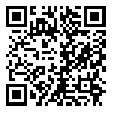This Day in Unitarian Universalist History December 18
1523 – Ludwig Hetzer, a Protestant with Unitarian beliefs, published a treatise against the worship of images. He denounced the trinity, claiming that “the Father alone is the true God…” Hetzer was arrested, charged with impugning the doctrine of the Trinity by the Synod of Constance, and ordered beheaded and burned. The sentence was carried out the same day.
The post December 18 first appeared on Harvard Square Library.
Read more at: www.HarvardSquareLibrary.org – the digital library of Unitarian Universalism.


